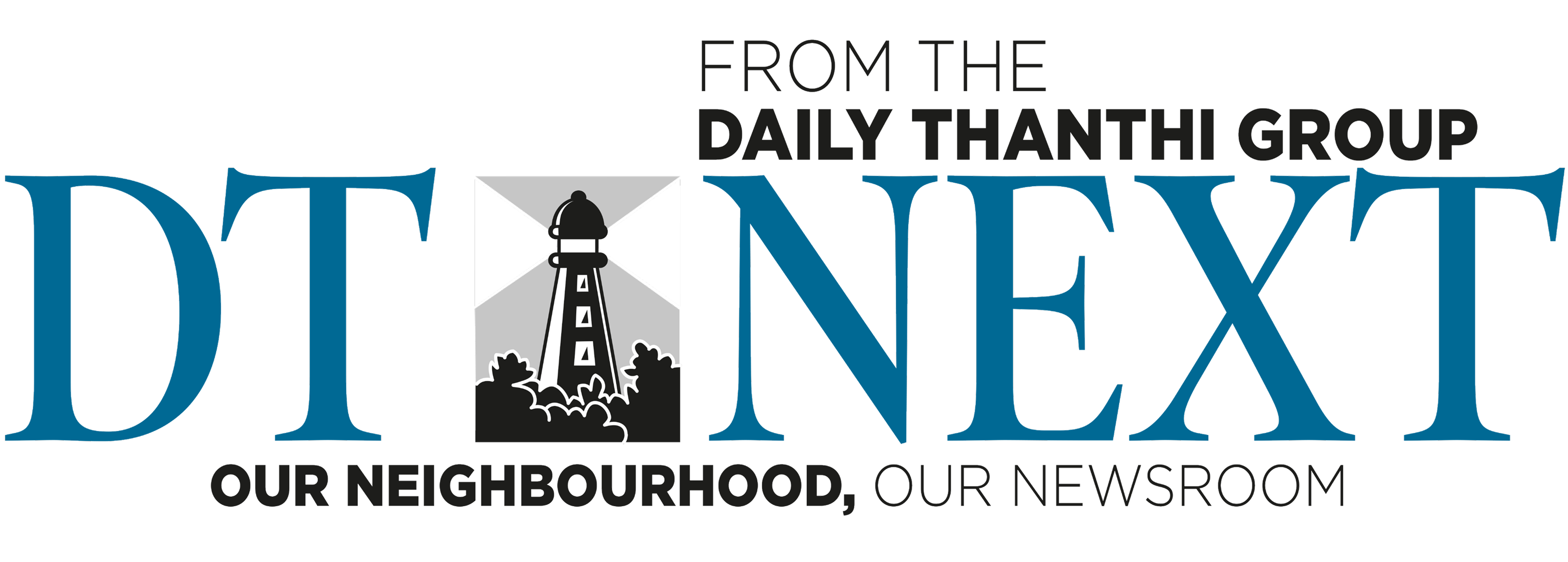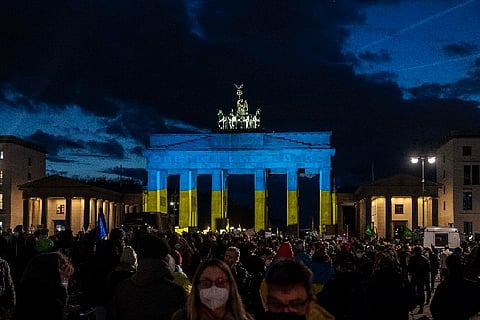The USSR story: How Ukraine discarded the 'hammer and sickle'?
Chennai
The Putin-led Russia has been inflicting wide-ranged attack against Ukraine since Thursday. While the crucial Chernobyl nuclear power plant has fallen and the Russians are approaching Ukraine capital Kyiv at warp speed, the agression and bellicosity is palpable, so is a sense of insecurity on the part of Russia.
To understand Russia's desperation to stop Ukraine, we need to be thoroughly informed of what is at stake for the former in Ukraine.
The pertinent point behind assault on Ukraine is to silence Putin's skeptics, of his unchecked power, and to make sure Russians are on the same page when it comes to accepting him. Why Ukraine? Because of its pro-West leanings.
How did Ukraine position itself in a place it is at today?
Ukraine as we know today:
Ukraine, was one of the regions in Soviet Russia. The Ukrainians back in 1990 protested, popularly known as the "Granite Revolution", to free their land from the Communist rule and given the weakening clout of Soviets, Ukraine won its freedom. The referendum on Ukraine's independence gained overwhelming support. Notwithstanding, not all wanted the Communists to go away.
Ukraine's diverse ethnic demography:
Ukraine houses varied ethnic and lingual communities. With the eastern part of the Ukraine having a sizable number of Russian speaking people, they didn't hold pro-Western policies of the country. The breakway regions Donetsk and Luhansk which were declared "independent" by Russia is located in eastern Ukraine. The Russian forces have barged into Ukraine on numerous occasions in the pretext of "safeguarding Russian interests". The Crimean annexation in 2014 was one such occassion.
Read more: Tamil Nadu students in panic mode
"Threat" of NATO expansion:
Russia sees Ukraine as a gateway for NATO to meddle with its security and internal affairs. While NATO in its official website has said "NATO defends the nations under its treaty, but doesn't try to deter Russian security" and criticizes Russia for calling NATO an "invasive force" while it was Russia which "invaded Georgia and Ukraine." Russia in its talks aimed at dialling down tensions with Ukraine had kept the demand of NATO returning to its pre-1997 status quo by rolling back troops from eastern European countries. Russia also warned Ukraine not to seek NATO membership.
Traces of Communist "love" in Ukraine:
While Ukraine as an independent nation is looking westwards, the multi-ethnic nation is not quite together when it comes to foreign policy. The eastern part of the country still has the Communist sentiments running high. Ukraine refusing to budge to the pro-Kremlin voices in the nation has irated Russia. There is one important revolution to be noted that technically bolted Ukraine's door to Russia--- The Maidan Revolution or The Revolution of Dignity in 2014. Russia was looking to capitalise Ukrainian President Viktor Yanukovych, a pro-Moscow figure, refusing to sign political association and free trade agreement with the European Union as an opportune time to tilt Ukraine towards it. That was when the revolution took place. The crackdown on the revolution resulted in over 100 civilian deaths, which was followed by an Impeachment vote that overthrew the Yanukovych government. Viktor Yanukovych fled the country fearing repercussions for his actions, if he gets impeached, which he did. While the powercentre made its mind to go west, discontentment simmered in the Eastern Ukraine where Yanukovych enjoyed great support. This had further alienated the Eastern Ukrainians from the rest of the nation. Russia then laid ground to annex Crimea before Ukraine could regroup.
Russia's trepidity over Ukraine's liberal policies:
Growing democratic and liberal systemic changes around Russia's neighbours has caused great concern to Putin, who fears Russians "getting ideas of freedom" from their neighbours. Ukraine freeing itself from the Soviet clutches has made way to pathbreaking developments in the country's press freedom. The "Freedom of the Press 2007: A Global Survey of Media Independence" had revealed that out of the 12 Baltic states, only Ukraine and Georgia enjoyed a "partly free status" due to the political upheaval. The upheaval mentioned in that survey refers to the "Orange revolution", a term still dreaded by Putin, who on Kazakhstan unrest early this January had commented that he "will not allow governments allied with Moscow to be toppled by the 'colour revolutions'". He made a reference to the uprisings in the various pro-Russia governments. Ukraine went through the "Orange revolution" demanding vote recount citing that the 2004 Presidential elections was rigged in favour of Viktor Yanukovych against the pro-West leader Viktor Yushchenko. The recount resulted in Yushchenko defeating Yanukovych with a comfortable 7 per cent vote difference. Yushchenko's mandate paved way for a plural and democratic functioning of media in Ukraine. Putin, who is indisposed to dissent, does not want the Russians to take a page from Ukrainian revolutions in terms of individual and press freedom.
Visit news.dtnext.in to explore our interactive epaper!
Download the DT Next app for more exciting features!
Click here for iOS
Click here for Android

